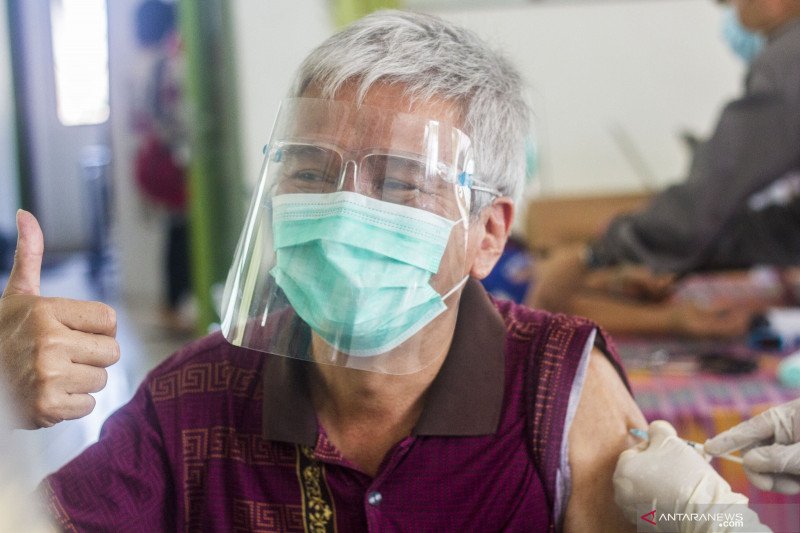Jakarta (ANTARA) – Elderly people (seniors) need a distance of 28 days for the second COVID-19 vaccination, different from the category of vaccine recipients aged 18-59 years who need a distance of 14 days.
“There is a difference because in the elderly according to the study, with 0-28 days it turns out that antibodies are better, optimal, higher than 0-14 days,” said Chairman of the PB IDI COVID-19 Vaccination Team, Prof. Dr. dr. Iris Rengganis in a religious discussion with the theme “Thoroughly Peel the Nutrition and Vaccine COVID-19 for the Elderly”, Sunday.
According to the Immunology Allergy Consultant at RSCM / FKUI, elderly people need a longer time to form antibodies and the time span for administering the second vaccine 0-14 days after the first COVID-19 vaccination is considered insufficient.
Not to mention that there is a degeneration of the immune system in the elderly which causes the formation of antibodies to take longer than in younger age groups.
“The first injection just produces antibodies, but not protective ones. The antibodies that are formed already hit the virus that enter the body through the vaccine and then slowly increase.
Also read: Here’s how to get vaccinated against COVID-19 on a drive-thru basis
Also read: Is the COVID-19 vaccination safe for pregnant and lactating women?
“In the second vaccination, then the antibody rises to a protective level or neutralizing antibody that can protect the body from the virus,” said Iris.
The vaccine given between these two age categories is the same, namely Sinovac with a dose of 0.5 ml of IM injected into the muscle by injection.
The elderly are among the age group that is vulnerable to severe symptoms of COVID-19 and has died from a disease that has become a pandemic since the last year. Data shows, as 48.3 percent of deaths from COVID-19 occur in elderly patients.
The government has started a COVID-19 vaccination program for the elderly category on February 8, 2021 at health facilities, both public and private health centers and hospitals. Vaccination for the elderly is a follow-up to the issuance of an emergency use permit from the Food and Drug Administration (BPOM) for vaccines.
Iris emphasized that the vaccine provided by the government has passed a series of rigorous and safe clinical trials for the age group 60 years and over. According to him, there have been no serious side effects or deaths reported so that the public does not need to worry.
Furthermore, the elderly with controlled comorbid diseases can get vaccines. So far the recommendations for comorbid diseases that are allowed include chronic obstructive pulmonary disease (COPD), liver disease, diabetes, food allergies, asthma, allergic rhinitis, atopic dermatitis, HIV with special doctor’s notes, obesity, thyroid nodules, psychosomatic disorders and tuberculosis.
The vaccination program itself is not everything to stop the COVID-19 pandemic, but an effort to achieve group immunity with the target population being vaccinated as much as 70 percent.
On the other hand, this method is taken as a solution to reduce the morbidity and mortality of patients due to COVID-19, minimize the social and economic impact of the pandemic, strengthen the overall immune system, prevent disease transmission and control disease transmission as is the case with polio.
Iris reminded that those who have not been vaccinated or who have received it will continue to adhere to the 5M health protocol, namely wearing masks, washing hands, keeping distance, staying away from crowds and reducing mobility.
Also read: The benthic drive-thru method for vaccinating the elderly with COVID-19
Also read: LaNyalla asked for vaccine services for the elderly not to queue
Also read: Vaccination of COVID-19 in the elderly, an effort to protect at-risk groups
Reporter: Lia Wanadriani Santosa
Editor: Alviansyah Pasaribu
COPYRIGHT © ANTARA 2021
–


